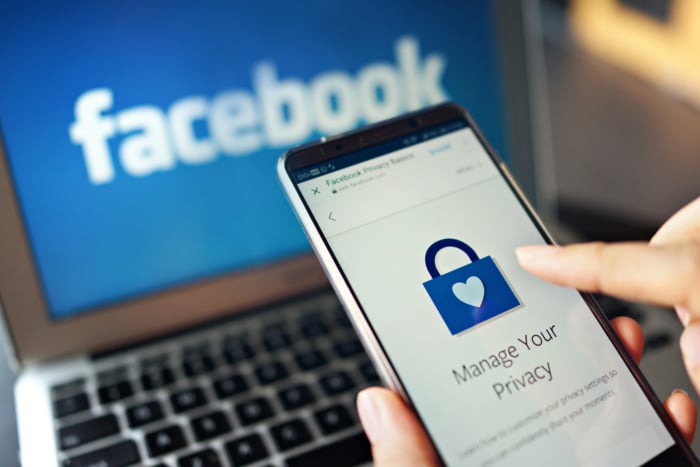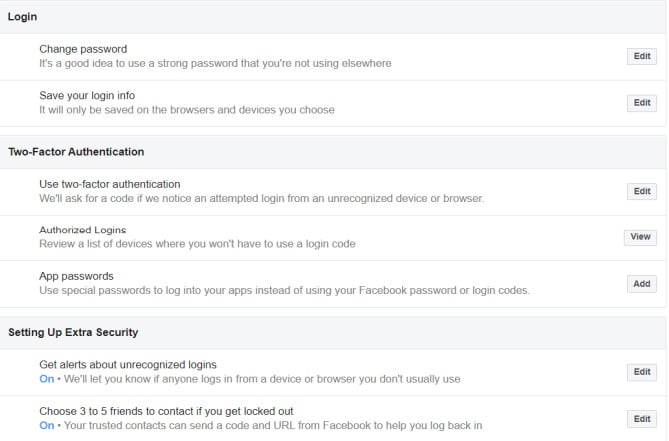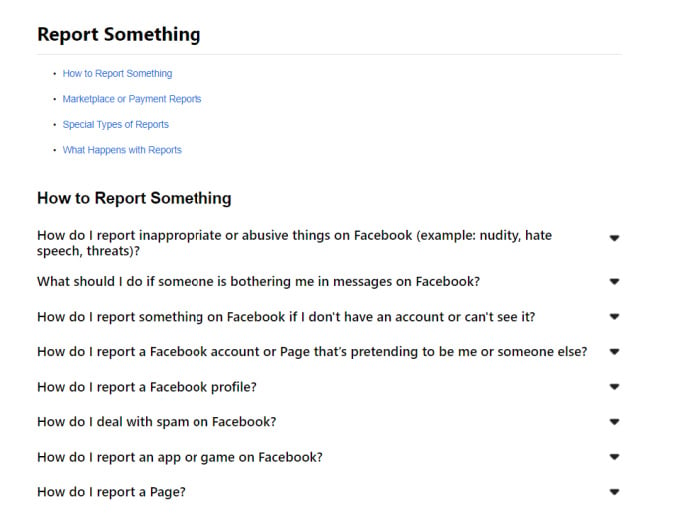
If you’re like most business owners, you’ve invested resources in creating a Facebook business page that engages your customers. You may have spent years growing your following and building trust.
What if something leaves your business page vulnerable to a Facebook hack?
Here is what you need to know to protect yourself—and your business—from a Facebook hack.
How Often Do Facebook Hacks Occur?
Unfortunately, Facebook hacks are quite common. According to the New York Post, as many as 160,000 Facebook accounts are compromised each day. Users tend to be more relaxed about security when using social sites like Facebook, leaving them vulnerable to hackers.
How does this affect your business page? Facebook allows users to access business accounts through their personal profiles. Every person with admin control over your Page is vulnerable to a Facebook hack that could leave your page open to hacking.
Hackers typically gain access to Facebook pages through phishing scams, email attachments with malware, data breaches that reveal passwords, or users’ carelessness (such as not logging out of Facebook or using easy to guess passwords.)
Large-scale data breaches may happen less frequently, but the scale can be staggering. For example, in a widely reported Facebook hack and data breach, hackers gained access to nearly 50 million exposed accounts.
What Do Hackers Do With Your Facebook Business Page?
You’ve likely put a lot of time and money into creating the best Facebook business page and growing your audience of loyal followers. Your audience is tempting to hackers, too.
Hackers who gain access to your page can post their own links, attracting your fans to click on spam links—leaving them vulnerable to Facebook hacking as well.
They might create and approve ads via your Ads Manager to promote malicious content, with high spending that could cost you thousands before you can take action.
They could also use the information stored in your Facebook account for identity theft or to access other online accounts, including hosting, banking, or other social accounts.
All of this can cost you time, money, and the trust of your audience. While you may stop malicious activity relatively quickly and even recoup some costs, you could lose access to your page for a time. The opportunity cost of not being able to market via this platform can have a significant impact on your business.
9 Strategies to Protect Yourself From a Facebook Hack
Many strategies to protect yourself from a Facebook hack are standard online security steps you should use on every online platform. If you haven’t paid much attention to online security, start with the basics, then explore security features in each platform or app.
Hint: If you’ve been using the same password for years across multiple platforms, you’re long overdue for an update.
1. Make the Most of Facebook’s Security Settings
A look at your Facebook settings will lead you to a detailed section called Security and Login. Review each section for tips and information on best practices to keep your account secure.

Make sure to scan your computer for malware and viruses regularly. Antivirus software helps spot problems that might leave you open to Facebook hacks, such as keyloggers or redirect viruses.
Keep your software up to date; this ensures you are using the most secure versions of your browser and other apps, including any recent security updates or improvements.
Remember that your business page is only as secure as the people who have access to it. Protect your personal profile, and share security updates and best practices with your team.
2. Create a Strong Password
Passwords are the first line of defense in online security.
Your password should follow the guidelines on each site you use. This is likely a combination of upper and lower case letters, numbers, and symbols. Choose something unique to you, with a tricky combination of these characters to create a password others would find hard to guess.
Do not use the same password on every site. Instead, use different passwords for every online account. For example, you might use one for your secure financial accounts but a completely different password for your social accounts and other platforms that might be easily hacked.
In the case of a Facebook hack, you’ll at least be protected from the hackers using your Facebook password to access more secure accounts, like banking or retirement accounts.
Consider a password manager like LastPass or 1password so you don’t have to remember dozens of passwords. These platforms store all your passwords in one place so you only have to remember one password. They can also generate random passwords that are more secure.
Make sure you never enter your password anywhere except the Facebook app or at Facebook in your web browser.
If you’re using your internet browser, be careful entering the domain into your search bar. Hackers sometimes spoof domains close to the real Facebook domain to capture login information from users who aren’t paying attention.
3. Use Two-Factor Authentication
Two-factor authentication simply means if you ever log into your Facebook account from a new device, the platform will automatically ask you for your password and require an additional security check. This step usually includes entering a security code sent via text or email to a pre-approved address or number.
To set up two-factor authentication in Facebook, visit your Settings page, select Security and Login, and then edit the section labeled Two-Factor Authentication.
Facebook will prompt you to provide contact information to verify your identity when logging in. You’ll also get alerts if someone tries to access your account from an unfamiliar device.
4. Read Emails Facebook Sends Out
Facebook often sends out emails to verify suspicious or unusual activity. Make sure the email address on file is one you check regularly and read the emails you receive in case Facebook is trying to flag suspicious activity.
Staying on top of the risks, being familiar with common phishing attempts, and understanding the latest security recommendations from Facebook can go a long way toward keeping you safe online.
You can see a list of recent email messages sent by Facebook in your account settings under Security and Login, in the Advanced Section.
5. Have Multiple Admins for the Account
How else can you protect yourself from a Facebook hack? Give careful thought to the people you give admin access to for your business page.
It’s a good idea to have more than one admin for your page in case you ever lose access or are unable to log in. If your profile is hacked, another admin you trust can keep the page running and help you gain back your access.
However, that doesn’t mean more is better. Periodically checking to remove people who no longer need access to your page. If someone needs temporary access, grant it at the appropriate level, then remove it when their task or project is complete.
6. Use Proper Page Admin Levels
Facebook provides several page admin levels, which enables you to grant different access to different people. Be careful who you add, and only grant them access they need to complete assigned tasks.
Perhaps you need an employee to post to the page to carry out your Facebook marketing. Review the different levels and their permissions and only provide admins the level of access they need to do the job.
Giving every person you add as an admin the ability to remove and add other admins means they could potentially remove you—with little recourse to regain access. They could also add admins you don’t know and take over your page.
Only people you trust absolutely should have the ability to remove and add admins. This chart breaks down the permissions for each level:

7. Report Any Unusual Activity to Facebook
Report any unusual activity to Facebook to keep your account secure. You can report messages, profiles, or posts right on Facebook to let them know you have concerns about something you see on the platform.
Reporting can allow you to use Facebook more safely and flag any suspicious behavior to Facebook.
If you are uncomfortable with behavior or messages from another user, simply block them to ensure they are removed from your friend’s list or page. This action will also prevent them from messaging you on the platform.
8. Log Out of Facebook After Using Shared Computers
Have you ever used a computer at work, the library, or a coworking space? You’ll need to exercise extra caution to log out when you’re done. This step is critical to remember when using accounts that contain personal information.
If you’re using Facebook from a computer you don’t own, always log out immediately afterward. You have no idea who may use the device after you, and staying logged in leaves your account wide open.
If you ever can’t remember if you logged out after using Facebook on a device you don’t own, change your password immediately so your security is never in question. You can also log out remotely from all devices in Security and Login Settings. Protecting access to your accounts can stop a Facebook hack from happening at all.
9. Don’t Accept Friend Requests From People You Don’t Know
Hackers often gain information they need to guess your password by adding you as a friend on Facebook. They may even add mutual friends, making them look like a safe person who is already in your network. Or they may directly impersonate someone you know.
If you don’t know someone, don’t accept their friend request. If the request seems suspicious or duplicated, reach out to your friend by text or email to let them know someone is using their likeness or identity online.
Allowing access to your personal profile can provide access to information like your birthday or high school. This information makes it easier to hack into your business account or impersonate you to gain access to other social accounts, your friends, or even your audience.
Conclusion
Preventing Facebook hacks on your business page requires more than posting engaging content and creating Facebook ads. There are real security risks you need to be aware of to protect your investment—and your customers. Luckily, a few simple steps can help protect you.
Stay up to date on the security features of each platform you use, and protect your personal Facebook profile as well as your business page. Take advantage of alerts, emails, and other notifications to help you act quickly should a Facebook hack occur.
These steps will reduce your risk so you can enjoy growing your audience and connecting with your customers without expensive and stressful setbacks. If this seems overwhelming, connect with us for help so you can focus on running your business.
What steps can you take today to prevent a Facebook hack on your Business Page?
The post How to Prevent Facebook Hacks appeared first on Neil Patel.
About us and this blog
We are a digital marketing company with a focus on helping our customers achieve great results across several key areas.
Request a free quote
We offer professional SEO services that help websites increase their organic search score drastically in order to compete for the highest rankings even when it comes to highly competitive keywords.
Subscribe to our newsletter!
More from our blog
See all postsRecent Posts
- Web Hosting September 26, 2023
- Affiliate Management September 26, 2023
- Online Presence Analysis September 26, 2023

